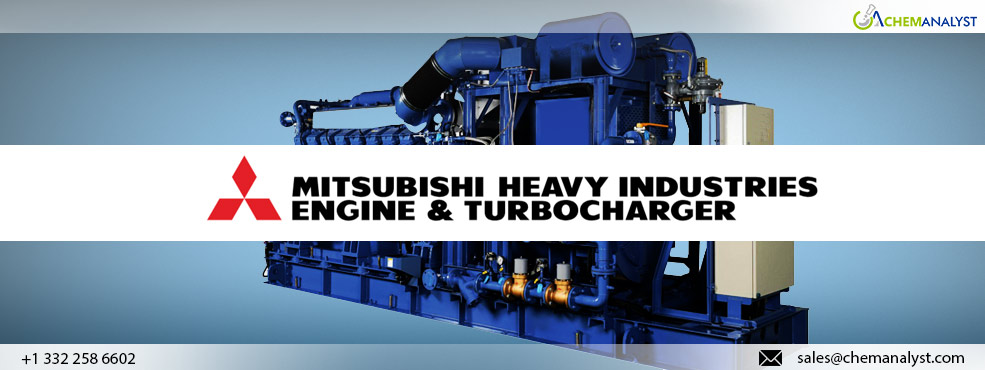Welcome To ChemAnalyst

Mitsubishi Heavy Industries Engine & Turbocharger, Ltd. (MHIET), a subsidiary of Mitsubishi Heavy Industries, Ltd. (MHI) Group, has been actively developing hydrogen combustion engines as a crucial product to support MHI Group's MISSION NET ZERO initiative, which targets net zero emissions by 2040.
In 2021, MHIET developed technologies to achieve stable combustion of 100% hydrogen in a single-cylinder engine with a 170mm bore and 220mm stroke, derived from its GSR engine series, through testing conducted at Japan's National Institute of Advanced Industrial Science and Technology (AIST).
As the next step toward commercialization, MHIET has completed the construction of a 6-cylinder hydrogen engine generator set. This set, with a 500kW-class output, includes all necessary equipment for electricity generation using a hydrogen engine, such as a generator mounted on the engine's output shaft, auxiliary equipment (fuel gas, lubricating oil, cooling water, intake and exhaust gas piping systems, and a generator control panel), and enclosures to protect the generator and auxiliary components. Additionally, a hydrogen supply facility has been established to deliver high-pressure hydrogen gas via trailers to the generator set at reduced pressure. Starting with a trial run using Japan's city gas, MHIET aims to confirm stable combustion at 100% load while running on hydrogen within this fiscal year.
As a component of these test sequences, there will be a thorough assessment of the recently developed hydrogen engine, with a specific emphasis on examining combustion stability, performance, and reliability. Given the unique properties of hydrogen (Compared to natural gas, hydrogen is highly combustible, capable of igniting with an energy equivalent to static electricity, and has a broader combustion range. Additionally, due to the small and permeable nature of hydrogen molecules, hydrogen engine generator sets necessitate stringent safety measures, including redundant leak prevention, leak detection, safe shutdown of the entire system, and effective ventilation to prevent gas accumulation), the evaluation will also encompass safety and other essential performance aspects required for a generator set. The tests will utilize green hydrogen, produced using electricity from renewable energy sources without CO2 emissions.
By conducting the entire development process—from design to evaluation—at a single location, improvements identified during evaluations can be swiftly implemented. MHIET aims to accelerate commercialization, with a target of achieving this by FY2026.
Reciprocating engines have a versatile structure that enables them to burn various fuels. Hydrogen engines, in particular, are seen as a promising technology for achieving carbon neutrality within the Energy Transition. Generator sets powered by hydrogen engines can contribute significantly to the carbon neutrality of distributed power systems, as they produce zero CO2 emissions while fulfilling power demands. Through demonstration tests, MHIET aims to promote the use of hydrogen and support the realization of a carbon-neutral society.
We use cookies to deliver the best possible experience on our website. To learn more, visit our Privacy Policy. By continuing to use this site or by closing this box, you consent to our use of cookies. More info.
